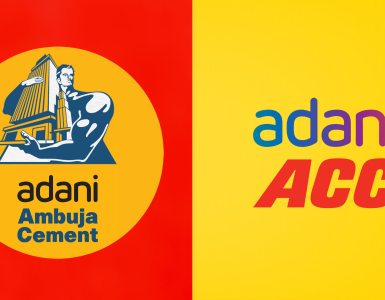CURRENT FACTS:
The Texas-based computer maker, which Dell started in his college dormitory room, once topped a market capitalization of $100 billion as the world’s biggest PC producer. Dell is now the number three global PC maker, behind Hewlett-Packard and Lenovo, according to the latest report from market tracker IDC, showing Dell’s market share at 10.6 percent.
Year 1990s was a great time for Dell to be in the business of selling customized PCs directly to companies. Dell was competing with companies such as Compaq that sold PCs through retailers. But Dell sold directly to companies using its website. This meant that Dell did not have to include the cost of the retail channel in its prices. This was just one of the many advantages Dell enjoyed during this time, which enabled it to charge higher prices and make PCs at a lower than industry-average cost.
DEATH OF THE PC DESKTOP:
The PC market as we have known is collapsing. Next year, tablet sales will beat notebook sales for the first time ever, says NPD’s Display Search. NPD analyst Richard Shim tells us that tablets are replacing notebooks because people think they’re more convenient. “Tablets turn on instantly, they’re more portable.
The rise of the tablet is being driven by changes within the PC industry. There is more investment in tablets from major tech companies, which is driving down component pricing, which in turn is driving down the average selling price of each tablet.
DELL GOES PRIVATE:
Dell has finally, officially reached a deal to go private. It’s going to be led by its founder Michael Dell, with a financial assist from private equity firm Silver Lake and PC enthusiast Microsoft. The deal is worth $24.4 billion. Shareholders would receive $13.65 in cash for each share of Dell common stock as part of the transaction, which is valued at $24.4 billion.
WHY THIS STEP: TO GO PRIVATE:
Companies View:
The computer industry has changed dramatically. Consumers now want to buy sleek tablets and use cloud computing. Dell needs to change its business, but when you’re a company traded on Wall Street, change can be hard. But through this step, Michael Dell would be free to execute his turnaround without the scrutiny of the public market with flexibility to do what he sees fit in order to drive long-term value.
When you are listed, you have shareholders who sometimes have short-term interests. They’re not looking to hold their shares for years. So going private will also give Dell the time and breathing room it needs, without having to explain to impatient shareholders every quarter why it hasn’t built a better iPad.
But it’s not just struggling companies that opt to leave Wall Street. For some, it just doesn’t make sense to be publicly traded. It’s a lot of work to comply with rules and requirements. If a business is not growing much, the markets might not give it much attention. Or its management might think it’s worth more than investors give it credit for.
MANAGEMENT BUYOUT (MBO):
A management buyout is a form of acquisition where a company’s existing managers acquire a large part or all of the company from either the parent company or from the private owners. Here, it is Michael Dell who is going to lead DELL, with Silver Lake a private equity firm and the rest would be funded through the syndicated loan. Michael Dell, a manager of Dell, knows the value of the company. Management buyouts are conducted by management teams as they want to get the financial reward for the future development of the company more directly than they would do as employees only.
MICROSOFT FUNDING – WHAT THAT MEAN:
First, Microsoft’s money ensures that Dell won’t run into the greener pastures of IT infrastructure, like some of its counterparts have. It also means that if and when Dell does enter mobile in a serious way, it will—at least in part—be through Windows Phone and Windows 8. Whether that’s a help or a hindrance remains to be seen (just ask Nokia).
Analysts say the software giant is concerned that trouble for Dell could lead to reduced sales of Microsoft’s Windows operating system. Microsoft’s future role at Dell remains unclear, though some are speculating that it could guide Dell toward new, interesting Windows-loaded products.
PROBLEM IN EXECUTING THE DEAL:
- For founders and management trying to buy back the company, there’s the danger of other bidders’ counteroffers.
- The plan is subject to several conditions, including a vote of unaffiliated stockholders.
- The higher value demanded by the long-term institutional investors
BENEFITS FROM THE TRANSACTION:
- Away from the spotlight of Wall Street.
- The move would delist the company from stock markets, and would ease some pressure on Dell, which is cash-rich but has seen profits slump, as it tries to reduce dependence on the slumping market for personal computers.
- Going private would make a transition easier by avoiding the spotlight of “ugly results,” which could come from scaling back the PC business?
- The company has made progress in its turnaround strategy, but it will still take more time, investment and patience, and this will be better supported by partnering with Silver Lake.
- Michael has been trying to turn Dell into a supplier of enterprise solutions for a long time.
- Analysts have said the deal may give the company a chance to regain some footing in a market in which smartphones and tablets are overtaking laptop and desktop computers.
- Microsoft’s participation in the deal suggests that Dell would remain in PCs and the Windows-based ecosystem.
- Dell can deliver immediate value to stockholders while they continues the execution of its long-term strategy and focuses on delivering best-in-class solutions to its customers as a private enterprise.
WHAT TO LOOK IN FROM THE RATING AGENCY:
Credit rating agency Standard & Poor is worried about Dell racking up debt in the transaction, warning it could cost the company its investment-grade credit rating. S&P said it was putting Dell, which currently has an A-rating, on CreditWatch with negative implications. The rating agency is thus weighing a downgrade of Dell’s corporate credit. And S&P rival Moody’s lowered Dell’s rating two notches, from A2 to Baa1. Fitch ratings, meanwhile, downgraded Dell to BB+ from A and placed it on Rating Watch Negative pending the buyout.
CONCLUSION:
Going private was the only way to go turnaround or the company would have to reinvent itself through inorganic growth by acquisition. Dell was trying to do so by making acquisitions add to its product and service line. Dell has spent nearly $13 billion in acquisitions over the past five years largely to create a bigger footprint in those sectors. These deals are not making Dell more formidable than IBM in the eyes of customers. Dell is simply not as good at executing IBM’s strategy.
The tech companies that went private recently have faltered viz. Avaya, SDS, and Freescale. Dell might also want to pay particular attention to those first two; they were funded by Silver Lake Partners. Just like Dell is now.
So, through A Little Privacy seems to be legible route if the other strategy is not working for the dell. It’s an obvious truth, but one worth repeating: private companies can play the long game in a way that public companies can’t. Most of all, Dell can take a deep breath and start building a business again instead of constantly playing catch-up.
One thing is crystal-clear that Dell is committed to this journey, as it is going to put a substantial amount of capital at risk together with Silver Lake.




